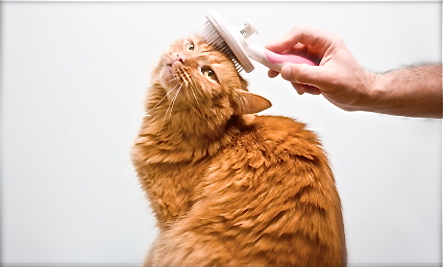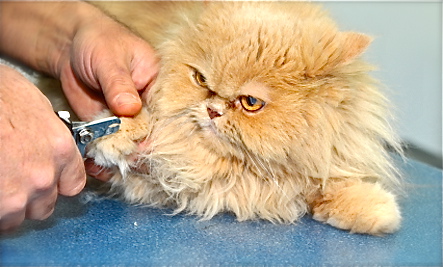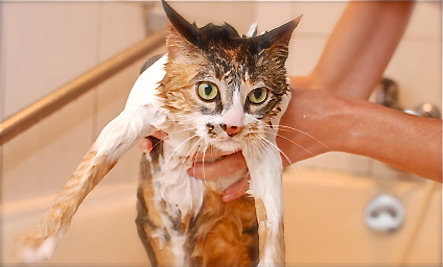Hair
Regardless whether you have a fancy cat like a Persian or a regular Shorthair, cats require hair brushing, not only to remove tangles, burs and dander, but to remove that extra hair your feline companion keeps leaving you in the form of hairballs. To be effective, brushing should be a daily routine for you and your companion. There are plenty of different tools on the market — brushes, combs, gloves, etc. — so choose wisely and ask your trusted pet stylist what works best with for your cat.
Nails
Nail clipping is also important for cats, especially indoor cats. It is best to get your companion used to it while he or she is young, but it really is never too late to start. If you are new at nail clipping, get advice from your cat’s stylist on how to do it properly without injuring your cat. And if you just do not feel comfortable clipping your own cat’s nails, that’s fine. Just get a pet stylist to do it on a regular basis.
Teeth
How would proper grooming be complete without a full dental brush-up? No, we are not talking about using abrasive teeth whitening pastes to give your cat that brilliant red carpet smile, but a little teeth brushing can go a long way. It removes plaque and tartar buildup and is a great way to monitor the cat’s dental health. There are quite a variety of toothbrushes made specifically for cats, along with botanical toothpaste. Just make sure to never use human toothpaste on your cat.
Bath
Some might say cats and water just do not mix. In this case, we need to disagree — it is necessary for little kitty to get a wash, even if it is just once in awhile. But be ready for a fight, the claws and fangs may even make an appearance. Use pet-specific shampoo and recruit a family member or friend to hold the cat down while you do the washing. Having trouble? Don’t fret. This duty can also be left to the expertise of a professional pet stylist.








